 Turnip sculptures amaze tourists in Qingdao
Turnip sculptures amaze tourists in Qingdao Chinese ship formation conducts live fire training in West Pacific
Chinese ship formation conducts live fire training in West Pacific
 China comes in third at figure skating team event
China comes in third at figure skating team event
 China's teenager skater Yan shines at his Olympic debut
China's teenager skater Yan shines at his Olympic debut
 Taiwan-born actor stars on US TV series
Taiwan-born actor stars on US TV series
 Chinese Lunar New Year gift from abroad
Chinese Lunar New Year gift from abroad Chinese champions of Winter Olympic Games
Chinese champions of Winter Olympic Games  Zhang Yimou fined 7.48 mln for over-production
Zhang Yimou fined 7.48 mln for over-production
 Top 10 timeless female Chinese stars
Top 10 timeless female Chinese stars
The campaign against the illegal sex trade in the booming southern entertainment city of Dongguan, Guangdong Province, will get tougher still, local police said on Tuesday.
Yan Xiaokang, director of Dongguan Municipal Public Security Bureau (PSB), promised that three months of intense activity would clean up KTVs, massage parlors and hotels involved in prostitution.
Almost 2,000 entertainment venues have been raided since the campaign began on Sunday night. By Tuesday, 39 establishments had been closed and 162 people were under investigation.
Lu Weiqi, deputy PSB director, said the police frequently raided known prostitution venues. In 2013, 981 sex trade cases were pursued in Dongguan and 350 people detained, Lu said.
Li Chunsheng, provincial vice governor and head of Guangdong PSB, said the campaign is not just about Dongguan but will cover the whole province. Teams will make unannounced visits to hotels and entertainment venues such as saunas, hotels, massage parlors and karaoke lounges.
Prostitution has been outlawed in China since the Communist Party of China (CPC) took power in 1949.
The problem is not just in China, but, according to a Tuesday comment piece in the CPC flagship newspaper the People's Daily, the international status of the sex trade makes the crackdown inevitable.
Ding Yu, sociology lecturer at Sun Yat-sen University, has studied the development of China's sex industry and the lives of those it employs. She echoed the view, saying that the raids have stuck a blow against the sex trade in accordance with the law.
The sex trade can result in a string of problems, including the spread of HIV, said Ding, one reason why many countries oppose prostitution. According to her, prostitution was traditionally considered a moral crime in China.
The harshness of the crackdown on illegal and immoral activities has triggered some sympathy for Dongguan's sex workers. Many aired their views online, claiming that sex workers are a vulnerable group whose privacy and rights should be respected. Some even attribute Dongguan's flourishing sex trade to migrant workers' sexual desire, inflamed by the process of urbanization.
Lu Weiqi describes a sex trade which involves a profit chain of hotel operators, contractors, managers, pimps and the sex workers themselves.
Limited police manpower has never succeeded in cleaning up the industry during past crackdowns, he said.
It is difficult for the police to collect evidence and identify the operators because of the so-called "protective umbrella" behind the scenes, according to Lu.
The information office of Dongguan has a hotline attached to its microblog for reporting illegal sexual services.
Anyone who provides protection to prostitution, including CPC cadres, government officials, and law enforcement officers will be severely punished, Li said.
 Special Coverage: Sochi Winter Olympic Games
Special Coverage: Sochi Winter Olympic Games  A day of a female high-speed train chief attendant
A day of a female high-speed train chief attendant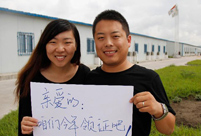 New Year greetings from Chinese nationals in Africa
New Year greetings from Chinese nationals in Africa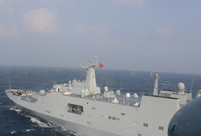 PLA navy conducts landing drills in South China Sea
PLA navy conducts landing drills in South China Sea  Blind date fair in Hangzhou
Blind date fair in Hangzhou 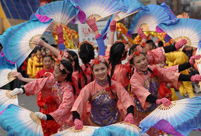 Highlights of Chinese New Year celebrations around the world
Highlights of Chinese New Year celebrations around the world 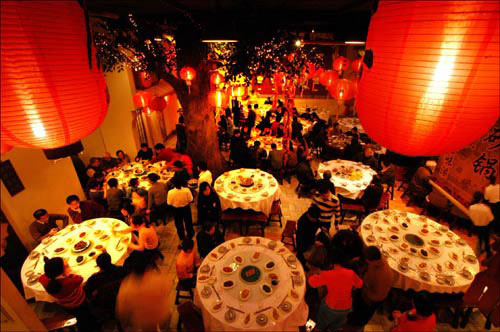 How do the Chinese spend their money during Spring Festival?
How do the Chinese spend their money during Spring Festival? 'Milk Tea' girl hosts Spring Festival gala of universities in U.S.
'Milk Tea' girl hosts Spring Festival gala of universities in U.S. 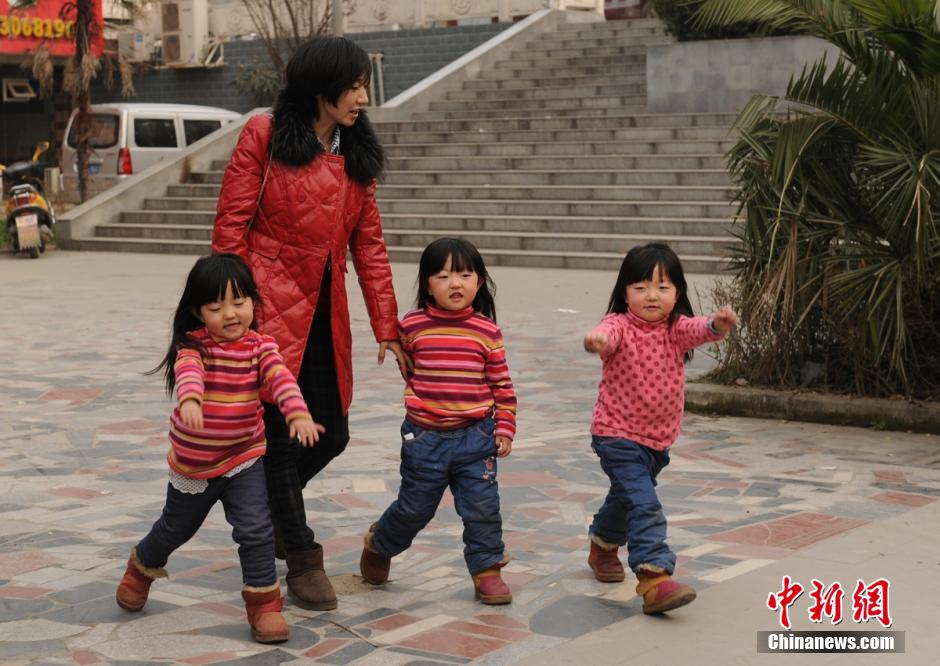 Brave mother fights cancer, enjoys Spring Festival with her triplets
Brave mother fights cancer, enjoys Spring Festival with her triplets President Xi attends opening ceremony of Sochi Winter Olympics
President Xi attends opening ceremony of Sochi Winter Olympics Highlights of opening ceremony of Sochi Winter Olympic Games
Highlights of opening ceremony of Sochi Winter Olympic Games Snowscape in Chinese New Year
Snowscape in Chinese New Year Interesting horse figures in life
Interesting horse figures in life  Top 20 most beautiful Chinese stars
Top 20 most beautiful Chinese stars  Top 10 Chinese films in 2013
Top 10 Chinese films in 2013Day|Week|Month